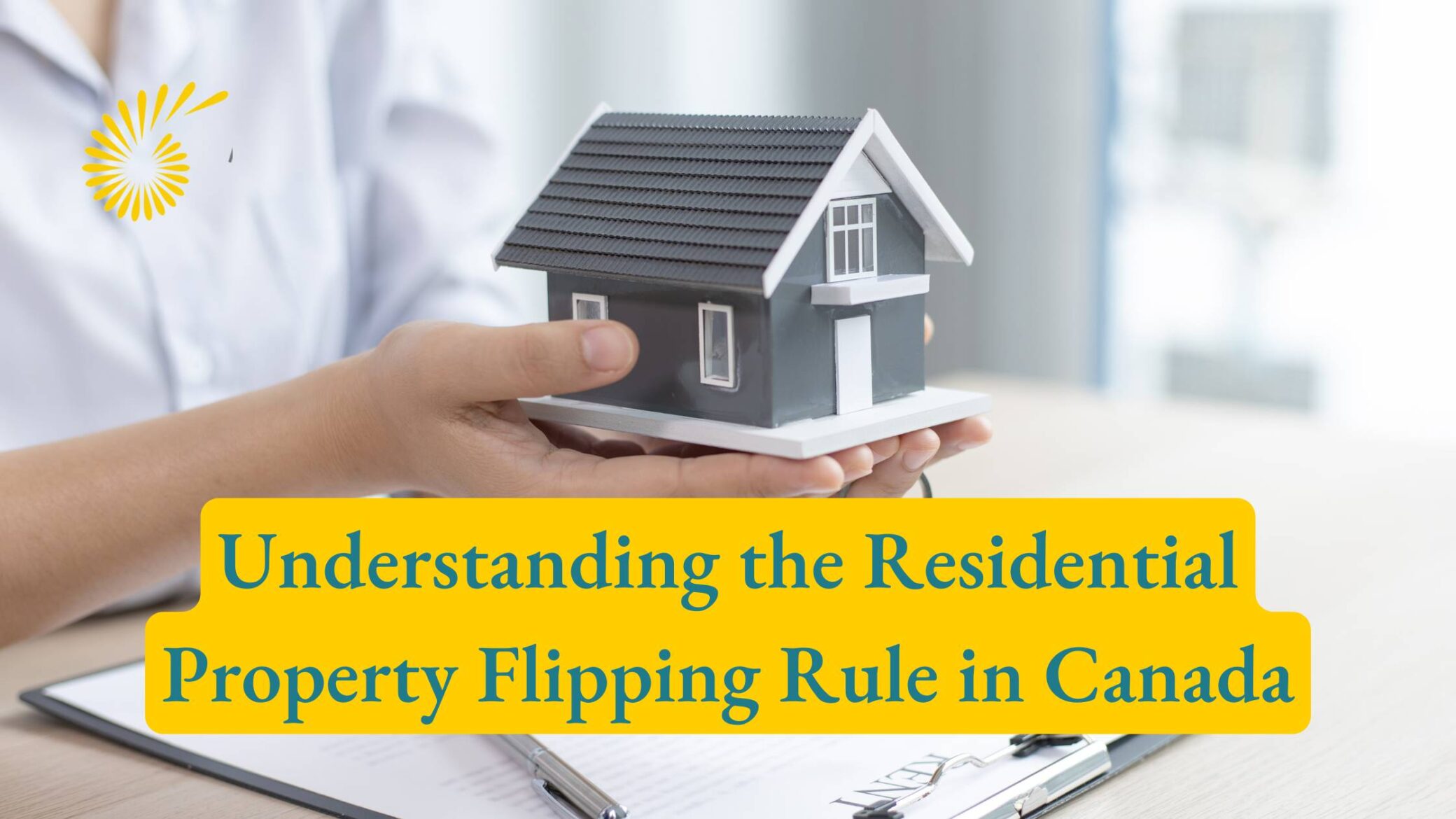Understanding the Residential Property Flipping Rule in Canada
The Residential Property Flipping Rule, introduced by the government of Canada for sales on or after January 1, 2023, is aimed at curbing the practice of buying and selling residential properties for a profit without paying the appropriate taxes. The rule aims to tax that profits from the disposition of flipped properties as business income, subject to full taxation.
We believe this legislation is un-necessary as there are already existing rules in the income tax act that are sufficient to tax business income of home flippers as business income, however the government is taking aim at this practice by drawing a ‘line in the sand’ for people who own properties for less than a year, except under some notable exceptions.
Here’s a detailed look at the key aspects of this rule:
What is property flipping?
Property flipping involves buying residential property and reselling it within a short period to realize a profit. This includes selling the rights to purchase a property before its official sale.
How do you report the profits from property flipping?
Profits from property flipping are fully taxable as business income. They do not qualify for the 50% capital gains inclusion rate or the Principal Residence Exemption.
What is a flipped property?
A flipped property is a housing unit in Canada that was not already considered inventory of the taxpayer and was owned for less than 365 consecutive days prior to the disposition. Certain life events, such as the death of the taxpayer or a related person, can exempt the disposition from being considered a flipped property.
What is the treatment of losses on a flipped property?
As an additional “slap in the face”, and in line with various initiatives the government is taking to deny real estate losses and deductions, such as those associated with non-compliant short-term rentals, any losses resulting from the sale of a flipped property are deemed to be nil.
Notably, losses are not denied if the profits from the flip were reported as regular business income, with the property taking the form of regular inventory.
Under what circumstances can I sell a property within a year and not be subject to the new property flipping rules?
If the disposition can reasonably be considered to occur due to, or in anticipation of one of the following life events, the property flipping rules will not apply. The specific life events are:
- The death of the taxpayer or a person related to the taxpayer.
- A related person joining the taxpayer’s household or the taxpayer joining a related person’s household (e.g., birth of a child, adoption, care of an elderly parent).
- The breakdown of a marriage or common-law partnership of the taxpayer, where the taxpayer has been living separate and apart from their spouse or common-law partner for at least 90 days prior to the disposition.
- A threat to the personal safety of the taxpayer or a related person (e.g., the threat of domestic violence).
- The taxpayer or a related person is suffering from a serious disability or illness.
- An involuntary termination of the employment of the taxpayer or the taxpayer’s spouse or common-law partner.
- An eligible relocation of the taxpayer or the taxpayer’s spouse or common-law partner (e.g. a relocation that enables the taxpayer to carry on business, be employed or attend full-time post-secondary education).
- The insolvency of the taxpayer (e.g., due to an accumulation of debts).
- The destruction or expropriation of the property (e.g., where the property is destroyed due to a natural or man-made disaster).
Questions?
For more information on the current rules regarding the sale of real estate, visit the CRA’s website Residential Property Flipping Rule – Canada.ca
The Residential Property Flipping Rule is an un-necessary measure that doubles up on existing legislation, however, is now a reality that we need to be aware of, it is essential for individuals involved in property flipping to understand and adhere to these rules to avoid penalties and ensure compliance with the tax laws.
CONTACT US

